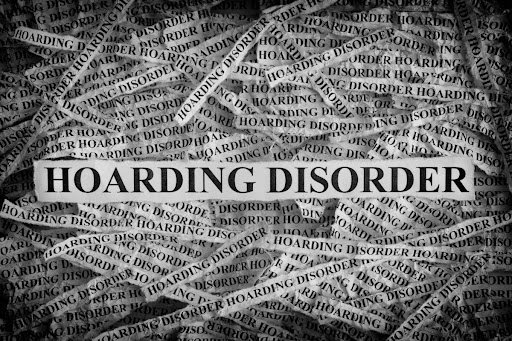How to Apply for Scholarships Via the Step Up For Students Program
Step Up For Students is a Florida-based organization providing a wide variety of K-12 educational opportunities. One of the most impactful ways they help students of all ages is through their various scholarship programs for several different demographics. Here’s more information about these life-changing scholarships — and how you or your young student can apply for them!
Supporting a Loved One with Depression: A Guide for Family and Friends
When a friend or family member is struggling with depression, your support and understanding can make a significant difference in their journey to recovery. However, navigating the complexities of mental health can be challenging.
Getting Accommodations on Standardized Tests: What Prospective Post-Grads Should Know
If you have a learning disability, physical disability, brain difference such as ADHD or autism, or another type of condition, you may face challenges when it comes to taking standardized tests. However, the good news is that as a result of the Americans with Disabilities Act (ADA), testing providers must allow students with disabilities to utilize accommodations so that they can have an equal opportunity to achieve success.
The Power of Mindfulness for Children's Well-Being and Success
Research has shown that mindfulness offers a multitude of benefits for children, positively impacting their psychological well-being and academic performance. In this blog post, we'll explore the psychological and academic benefits of mindfulness for children and provide resources for getting started with mindfulness practices.
Understanding Gender Differences in Autism Spectrum Disorder (ASD)
Autism Spectrum Disorder (ASD) is a complex developmental condition that affects an individual's ability to communicate, socialize, and process information. Although ASD affects individuals of all genders, its symptoms can manifest in unique ways between boys and girls.
Is Hoarding a Form of OCD?
Regardless of the type of obsessive-compulsive disorder (OCD) you have, they all involve problems managing compulsive behaviors or ignoring obsessions. OCD encompasses a large number of conditions, including hoarding disorder. Finding difficulty discarding items often revolves around an obsessive behavior toward possessions or a compulsive desire to continue gathering more.
A Look at Brief Intensive OCD Treatments
Cognitive Behavioral Therapy (CBT) with Exposure and Response Prevention (ERP) is the most empirically supported psychotherapeutic treatment for individuals with Obsessive-Compulsive Disorder (OCD).
Emetophobia: The Fear of Vomiting
Emetophobia, otherwise known as the vomit phobia, is characterized by an overwhelming and disproportionate fear of the acting of vomiting either by oneself or others. This condition is categorized under “specific phobias” in the current (5th) edition of the Diagnostic and Statistical Manual for Mental Disorders (DSM-V).
How to Manage Your Intrusive Thoughts
Intrusive thoughts seemingly come out of nowhere. Perhaps, you’re cutting vegetables for dinner or about to climb into bed when the disturbing image or thought comes to mind. While these thoughts can make you uneasy, they are not uncommon. Most people have intrusive thoughts from time to time. However, for a few people, negative thoughts can become frequent and all-consuming.
Navigating Sexual Intimacy with OCD: Understanding its Impact on Sexual Functioning
Obsessive-Compulsive Disorder (OCD) is a mental health disorder characterized by recurrent, unwanted thoughts, ideas, or obsessions that often drive a person to engage in repetitive behaviors or mental acts (compulsions) to reduce feelings of anxiety or to prevent something bad from happening.
Habit Reversal Training as a Solution for Hair Pulling
We can form a wide range of habits anytime we feel bored, tired, or deep in thought. It can stem from wanting to feel calmer during a triggering situation or more grounded in the moment. It could even be a nervous tick that you have picked up over time. One of the most common ones that can develop is hair pulling.
What Is Seasonal Affective Disorder, and How Do I Manage It?
Do you often dread the upcoming fall and winter months because you know you’ll instantly feel drained of energy and lack the motivation to do anything? You could be suffering from a form of depression that is triggered by the changing seasons.
4 Steps Parents Can Take to Help Their Child Who Is Suspected of a Learning Disability
Someone with a specific learning disorder (SLD) has difficulties learning and using academic skills significantly more than expected for those of the individual’s age. Under the Individuals with Disabilities Act (IDEA) 2004, all states require the use of response to intervention (RTI)/Multi-tiered System of Supports (MTSS)*, and it is considered the best learning disorder assessment to determine eligibility for an SLD.
Five Common Symptoms Occupational Therapists Treat When Working with Autistic Populations
Occupational Therapists (OT) are healthcare workers that help improve the quality of life of their patients. They work with a wide range of people who have injuries, illnesses, and conditions such as autism spectrum disorder.
Man’s Actual Best Friend: Service Dogs
Dogs provide us humans with many blessings, such as companionship, fitness, and lots of snuggles. Back in the 1920s, service dogs were considered almost exclusively for individuals with physical impairments such as auditory or visual. Now, a hundred years later, our world is open to service dogs not only for physical needs but also for mental health.
Supportive Professionals You May Encounter After an Autism Spectrum Disorder Diagnosis
Due to ASD being a developmental neurological disorder, the symptoms can affect daily life functions. There are many health professionals available to help reduce the symptoms caused by this disorder.




















